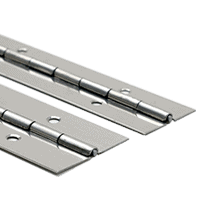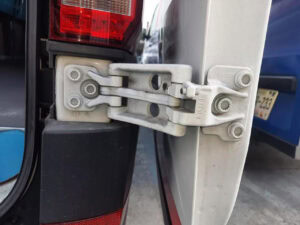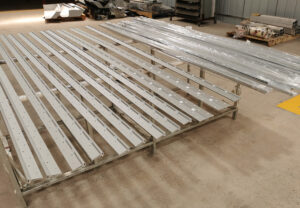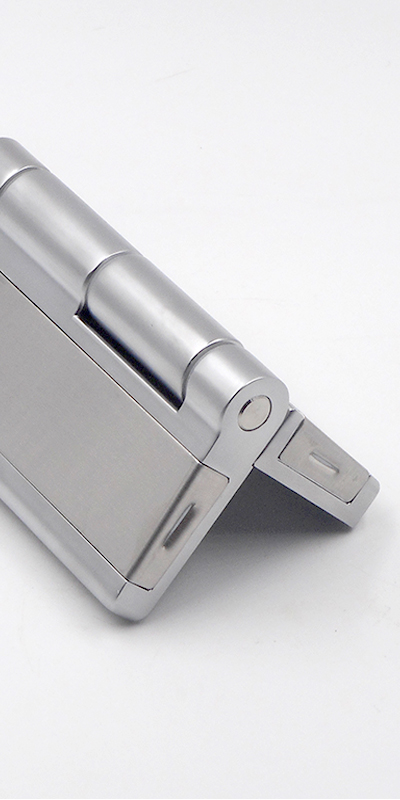Stainless steel hinges are a trusted choice in industrial applications for their durability and performance under demanding conditions.
Stainless steel is ideal for hinges in industrial settings due to its superior corrosion resistance, high strength, low maintenance, aesthetic appeal, and longevity. It performs exceptionally in harsh environments such as marine, medical, and food processing industries, making it a preferred material for manufacturers seeking durability and reliability.
Explore how stainless steel hinges offer unmatched value across heavy-duty, custom, and high-precision industrial use cases.
Corrosion Resistance in Harsh Environments
Stainless steel hinges thrive in corrosive environments due to their ability to resist rust and oxidation.
Stainless steel hinges resist rust and oxidation, making them perfect for wet, corrosive, and outdoor industrial settings.
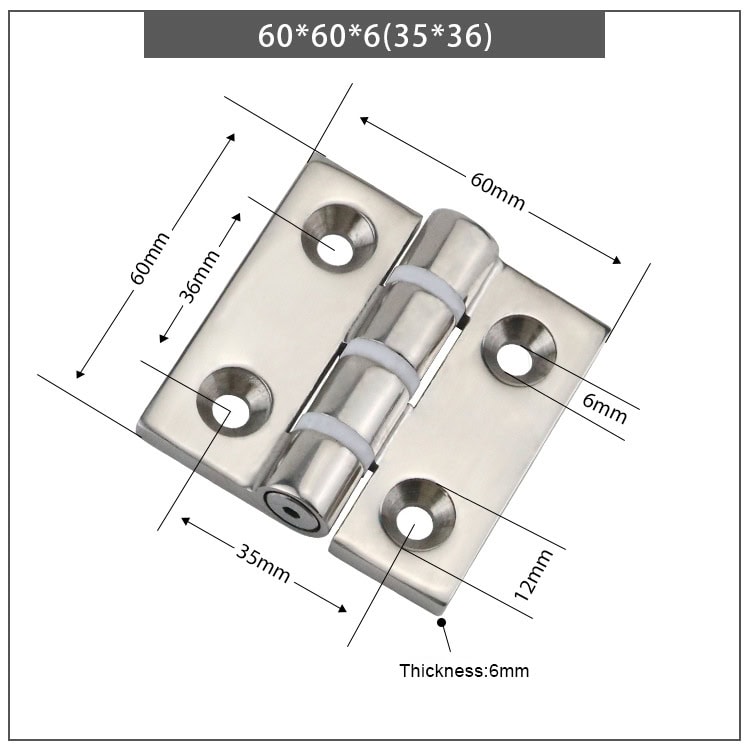
Marine-Grade Durability
Stainless steel contains a minimum of 10.5% chromium, which forms a passive protective layer on the surface. This layer prevents moisture, salt, and chemicals from penetrating and damaging the hinge.
This makes stainless steel the preferred material in marine environments, such as on marine hinges, or in coastal manufacturing facilities where salt air is present. In applications where hinges are exposed to water—such as cold storage, food processing, or pharmaceutical equipment—this corrosion resistance ensures a longer service life with minimal risk of degradation.
Industrial Reliability
Compared to aluminum or carbon steel, stainless steel provides extended resistance to corrosion, particularly when exposed to industrial cleaning agents or humidity. This makes it ideal for use in cold storage room hinges and chemical lab settings where other materials would fail prematurely.
Exceptional Strength and Load-Bearing Capacity
Industrial hinges must endure significant operational stress, which stainless steel handles with ease.
Stainless steel hinges support heavy loads without deformation, making them ideal for industrial enclosures and heavy-duty doors.
Ideal for Load-Intensive Applications
Stainless steel’s high tensile strength allows it to maintain integrity under extreme mechanical loads. That’s why it’s the go-to material for heavy duty hinges used in large enclosures, test chambers, trailer doors, or heavy industrial doors.
Whether dealing with dynamic stress or repeated impact from daily use, stainless steel outperforms softer metals like aluminum by maintaining consistent torque and mechanical precision.
Fatigue and Wear Resistance
Over time, inferior hinge materials may stretch or deform, affecting alignment and performance. Stainless steel’s fatigue resistance ensures a longer operating life in hinge systems that are frequently opened and closed—such as piano hinges installed in electrical cabinets or industrial oven doors.
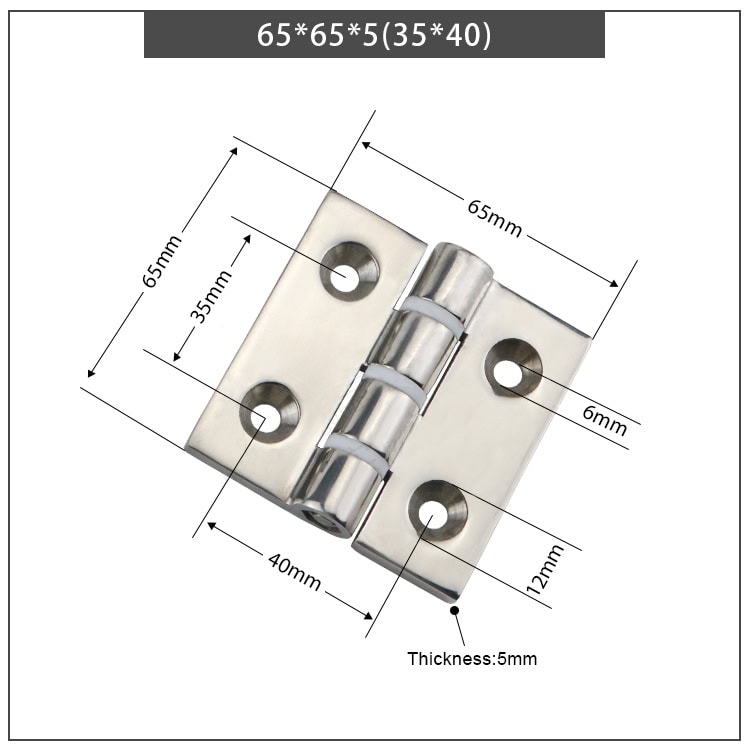
Long-Term Durability and Lifecycle Value
Cost-effective performance over time is one of stainless steel’s key selling points.
Stainless steel hinges last significantly longer than other materials, reducing replacement frequency and lifecycle costs.
Lower Total Cost of Ownership
Although stainless steel hinges have a higher initial price than carbon steel or aluminum hinges, their extended lifespan makes them a more economical choice over time. Industrial buyers recognize the value in minimizing maintenance, repair, and replacement costs.
This long-term value is especially important for OEMs and system integrators who rely on durable components, such as those sourced from a trusted industrial hinge production base.
Trusted by Equipment Manufacturers
From climatic test chamber manufacturers to constant temperature enclosures, stainless steel hinges are a staple in equipment that must function reliably for years. A longer hinge lifespan also reduces the risk of downtime or product failure in critical environments.
Minimal Maintenance Requirements
Industries value components that can perform with minimal oversight—and stainless steel hinges deliver.
Stainless steel hinges require little to no maintenance, especially in environments where lubrication and cleaning are challenging.
Self-Protective and Easy to Clean
The chromium oxide layer that forms naturally on stainless steel is self-healing and does not require protective coatings. In environments with strict hygiene standards, such as medical or food facilities, stainless steel surfaces are easily sanitized without compromising integrity.
These properties make stainless steel a preferred material in high-rotation components like detachable hinges, where easy access and hygiene are essential.
Non-Lubricated Environments
In settings where lubricants cannot be used—such as cleanrooms—stainless steel hinges continue to operate smoothly, thanks to their naturally low friction and corrosion-resistant design. This means lower maintenance schedules and fewer interruptions for equipment servicing.
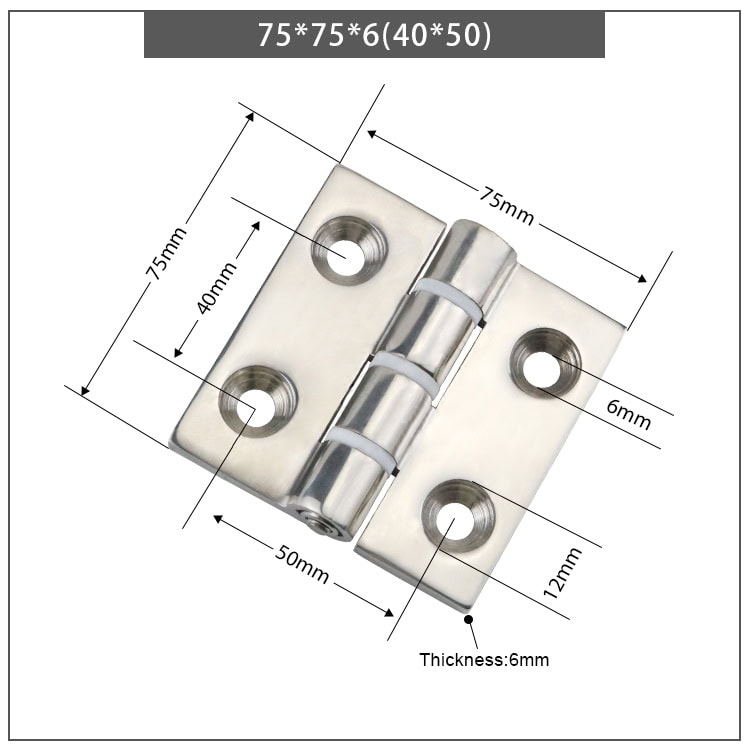
High Temperature and Weather Resistance
Industrial environments often demand performance across temperature extremes.
Stainless steel maintains integrity in extreme temperatures, ensuring hinge function in ovens, test chambers, and outdoor applications.
Heat Stability for Thermal Equipment
Stainless steel is ideal for high-heat environments like ovens or climatic test chamber hinges, where ordinary materials can expand, warp, or degrade. Its low thermal conductivity also reduces heat transfer, protecting sensitive components nearby.
Resilience in Outdoor Conditions
When exposed to rain, UV light, or freezing temperatures, stainless steel maintains its structural and cosmetic integrity. That’s why many outdoor machinery enclosures or transport containers use stainless steel trailer door hinges.
Conclusion
Stainless steel is a superior choice for industrial hinges, combining strength, corrosion resistance, and reliability across challenging applications.

